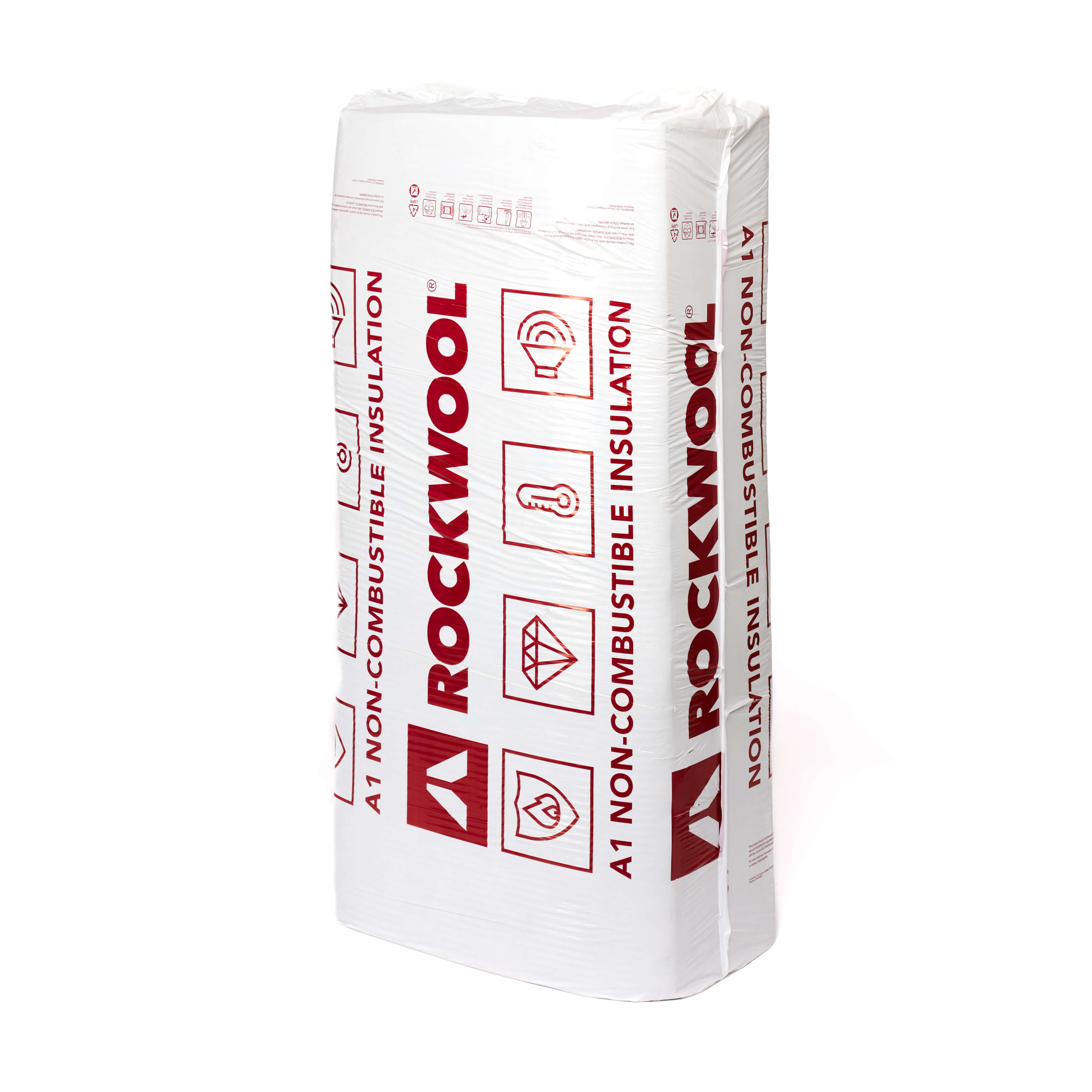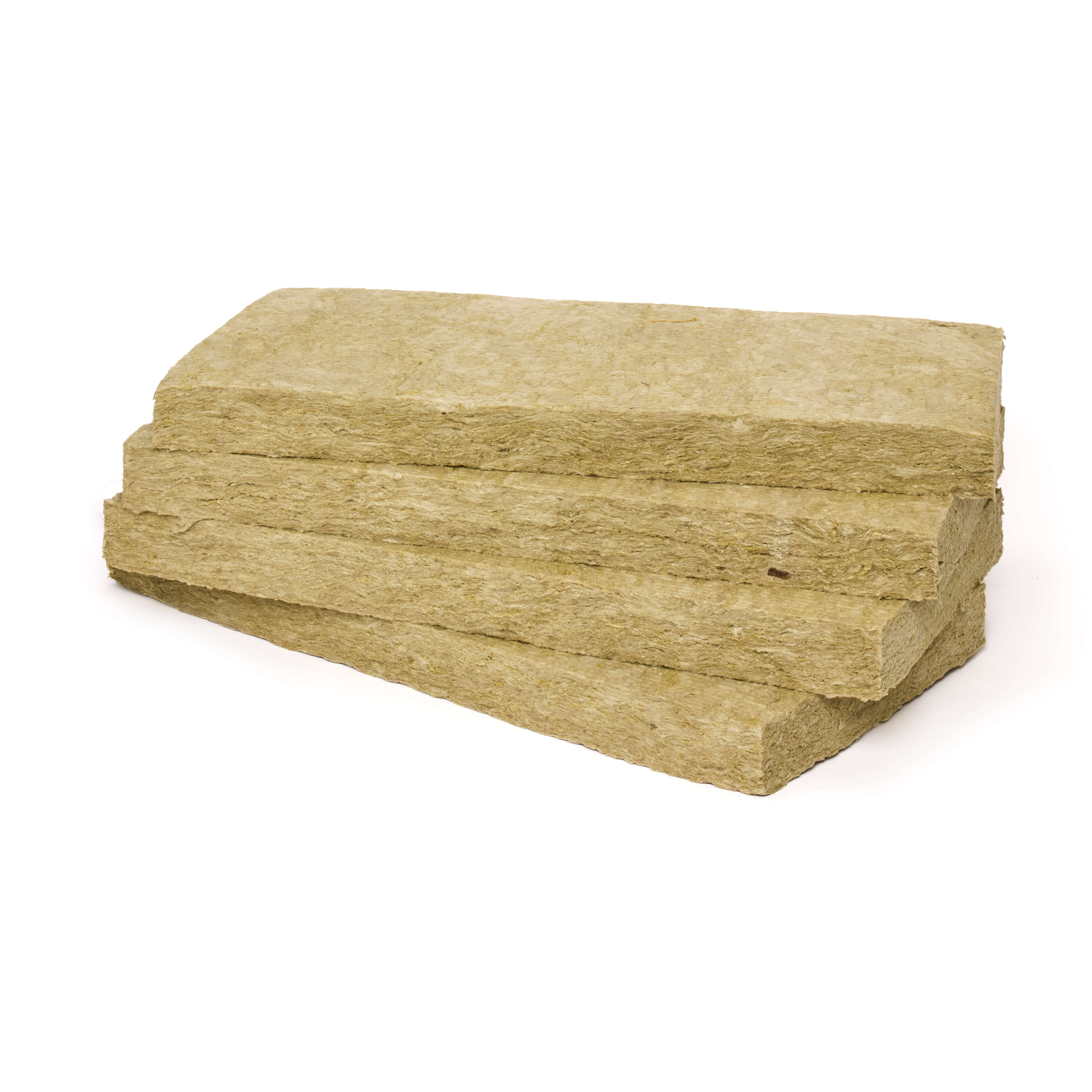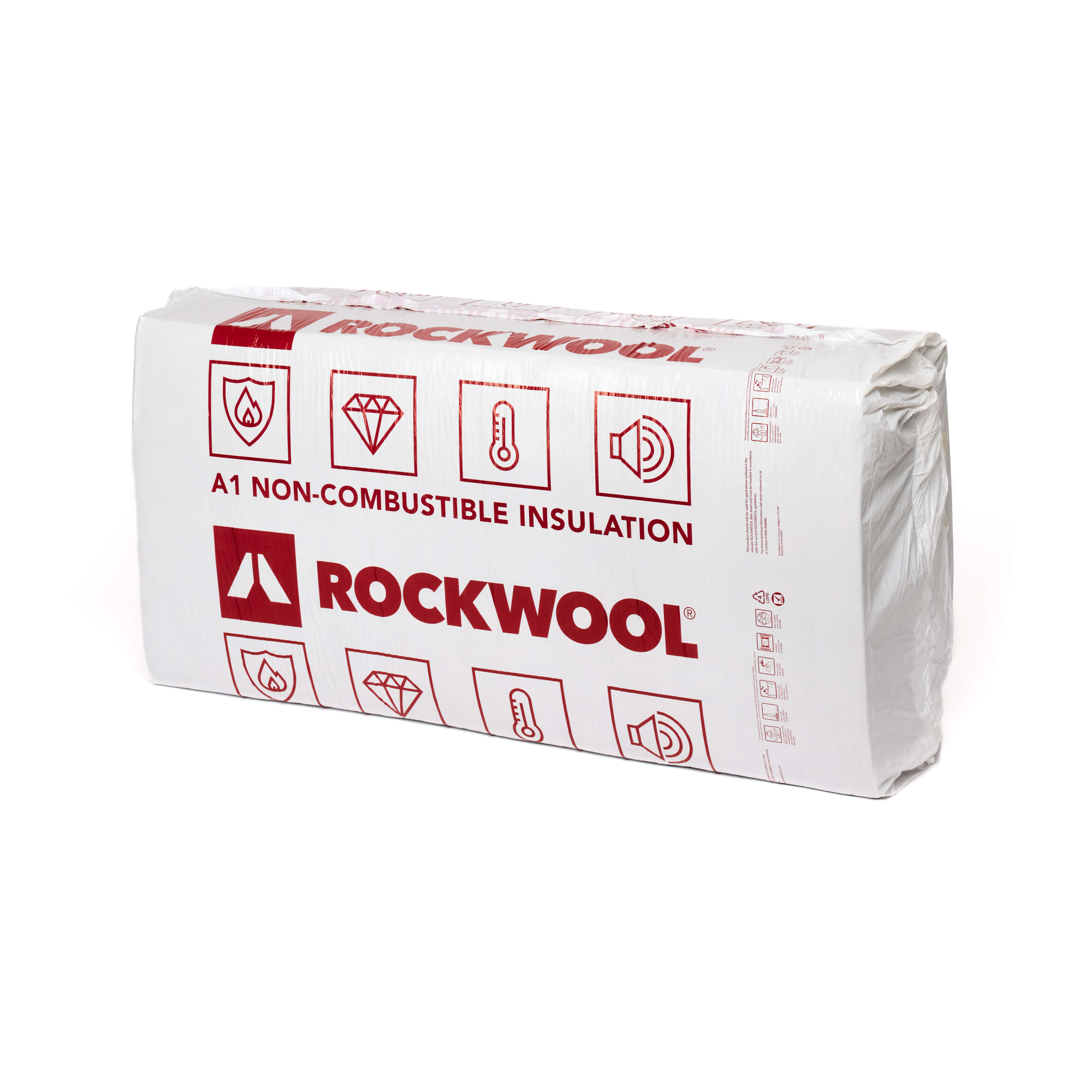Rockwool Insulation Acoustic Slab
(26 Products)Rockwool is a market leader in insulation, known for combining thermal, acoustic, and fire protection in one high-performance slab. Their 1200 × 600 mm stone-wool panels help retain heat, lower energy costs, absorb sound, and enhance fire safety, making them a reliable, all-in-one solution for walls, floors, and ceilings.
What Is Rockwool Insulation?
Rockwool insulation offers triple protection in a single, high-performance mineral wool insulation slab. Made from molten basalt spun into fine fibres, it delivers exceptional thermal efficiency (0.034-0.040 W/mK), outstanding acoustic absorption, and Euroclass A1 fire resistance - withstanding temperatures over 1000 °C.
Ideal for internal walls, separating floors, ceilings, and pitched roofs, these rigid 1200 × 600mm slabs friction-fit between studs or joists without fixings.
Moisture-repellent and vapour-permeable, they help regulate indoor air quality while resisting mould, sagging, or settlement.
Whether you're targeting Part L U-values, Part E sound standards, or passive fire protection, Rockwool makes compliance simple.
At Materials Market, we sell a vast range of Rockwool insulation products, including:
Applications
RW slabs integrate seamlessly into partition walls, whether constructed from brick, concrete, timber frame, or other base materials.
Beyond internal divisions, they can be used to reduce noise transmission throughout the entire building envelope, providing comprehensive soundproofing across walls, roofs, and floors.
Due to the unique moisture behaviour of stonewool: RW insulation is water-repellent while simultaneously allowing water vapour to pass through. This makes the slabs particularly well-suited for challenging areas like ceilings and basements, where effective moisture management is crucial to prevent damp and related issues.
The slabs can be used within:
- Interior timber or steel partition walls
- Interior timber frame floors
- Interior timber frame ceilings
- Pitched roofs
- Acoustic ceilings and partition panels
- I-joist interior partitions
- Party walls
Benefits
- Thermal Insulation: Offers excellent heat resistance, maintaining indoor temperatures and improving energy efficiency by reducing heat transfer.
- Acoustic Insulation: Dense, fibrous structure absorbs sound, reducing noise transmission between rooms, floors, and walls.
- Fire Resistance: Naturally non-combustible with a high melting point - effective fire barrier that slows the spread of flames.
- Sustainability: Made from abundant natural materials - recyclable and contributes to energy-efficient and sustainable building practices.
- Moisture Resistance: Does not absorb water - maintains its insulating properties even in damp conditions.
Rockwool: Thermal Conductivity & Thickness Recommendations
Rockwool Insulation Thermal Conductivity (λ): 0.034 - 0.040 W/mK
The following thicknesses are recommended based on thermal conductivity to meet specific U-values (overall heat transfer coefficient) for various building applications.
The thickness recommendations and U-value guidelines provided are based on general industry standards and Rockwool’s performance data. However, individual building requirements may vary depending on specific project conditions, local regulations, and other factors.
We strongly advise customers to consult with a qualified professional or building expert to ensure that the selected insulation meets all relevant building codes and performance requirements for your particular application.
Existing Elements
- Roofs: To achieve a U-value of 0.16 W/m²K, use 120-130mm of Rockwool.
- Walls: To achieve a U-value of 0.30 W/m²K, use 110mm of Rockwool.
- Floors: To achieve a U-value of 0.25 W/m²K, use 110-120mm of Rockwool.
Renovations/New Elements in Existing Dwellings
- Roofs: To achieve a U-value of 0.15 W/m²K, use 260-290mm of Rockwool.
- Walls/Floors: Similar to new builds, use 150-170mm for walls and 190-220mm for floors to meet the 0.18 W/m²K U-value.
New Builds
- Roofs: To achieve a U-value of 0.11 W/m²K, use 230-260mm of Rockwool.
- Walls: To achieve a U-value of 0.18 W/m²K, use 150-170mm of Rockwool.
- Floors: To achieve a U-value of 0.13 W/m²K, use 190-220mm of Rockwool.
Frequently Asked Rockwool Insulation Slab Questions
How Should I Store & Handle Rockwool Insulation?
Storage:
- Keep Dry: Store in a dry, sheltered area to prevent exposure to moisture. While Rockwool is water-resistant, prolonged exposure to moisture can affect its handling and performance.
- Stack Properly: Store the insulation slabs or rolls flat, ensuring they are stacked evenly to prevent deformation. If stored upright, secure the stack to avoid tipping.
- Avoid Direct Ground Contact: Place insulation on pallets or other raised surfaces to prevent direct contact with the ground, which can expose it to moisture and contaminants.
- Ventilation: Ensure the storage area is well-ventilated to reduce the risk of moisture build-up.
Handling:
- Wear Protective Gear: When handling, wear gloves, long sleeves, and dust masks to avoid skin irritation and inhalation of fibres.
- Avoid Damaging the Material: Handle the insulation slabs or rolls gently to avoid compressing or tearing the material, which could affect its insulating properties.
- Transport Carefully: When moving ensure the material is securely packed to avoid any damage during transportation. Use appropriate lifting techniques to prevent injury.
Is Rockwool Insulation Fireproof?
Rockwool insulation offers exceptional fire performance. The slabs can withstand temperatures up to 1,000°C.
Classified as Euroclass A1, the highest rating on the Euroclass system, Rockwool insulation meets the fire retardant standards outlined in BS EN 13162, ensuring superior fire safety.
Is Rockwool Waterproof?
Rockwool insulation is moisture-resistant and vapour permeable. Engineered to repel water, water will drain away rather than soak into the insulation, while gaseous water vapour will simply pass through it.
Therefore, if it gets wet, you can dry the material out, and it will maintain its original performance characteristics.
How Long Does Rockwool Insulation Last?
Rockwool insulation is designed to last for the lifetime of the building. It is durable, maintains its insulating properties over time, and does not degrade or settle. When installed correctly, Rockwool provides long-term performance without the need for replacement.















